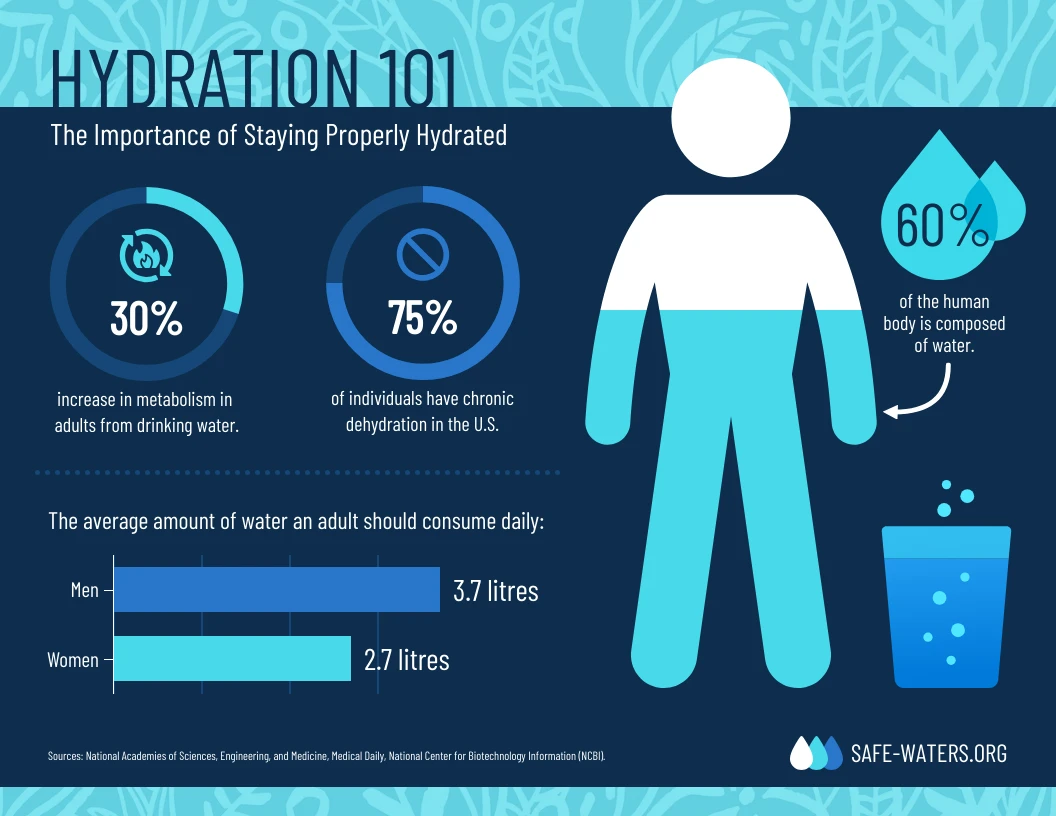Title: The Importance of Hydration: Understanding the Role of Water in Your Health
Introduction:
Water is essential for life, playing a crucial role in maintaining various bodily functions and supporting overall health and well-being. Adequate hydration is key to optimal physical and mental performance, yet many people underestimate the importance of staying hydrated. This exploration delves into the significance of hydration and the vital role water plays in supporting various aspects of health.
1. Regulation of Body Temperature:
– Water serves as a coolant for the body, helping regulate core temperature through sweating and evaporation.
– During physical activity and in hot environments, the body loses water through sweat to maintain optimal temperature, highlighting the importance of staying hydrated to prevent dehydration and overheating.
2. Nutrient Transport and Metabolism:
– Water is essential for the digestion, absorption, and transportation of nutrients throughout the body.
– In the digestive system, water facilitates the breakdown of food particles, helps dissolve nutrients for absorption, and aids in the elimination of waste products.
– Adequate hydration supports metabolic processes, including the conversion of food into energy and the removal of metabolic waste products from cells.
3. Maintenance of Fluid Balance:
– Maintaining fluid balance is crucial for proper hydration and overall health, as water is distributed throughout the body in various compartments, including cells, tissues, and blood vessels.
– Electrolytes such as sodium, potassium, and chloride help regulate fluid balance and cellular function, ensuring proper hydration and electrolyte balance.
– Dehydration disrupts fluid balance, leading to symptoms such as thirst, dry mouth, fatigue, and decreased urine output, which can impair physical and cognitive function.
4. Support for Physical Performance:
– Adequate hydration is essential for optimal physical performance and exercise capacity.
– Dehydration can lead to decreased endurance, muscle cramps, fatigue, and impaired cognitive function, negatively impacting exercise performance and recovery.
– Maintaining proper hydration before, during, and after physical activity is critical for sustaining energy levels, preventing heat-related illnesses, and maximizing athletic performance.
5. Cognitive Function and Mental Well-being:
– Hydration plays a significant role in cognitive function and mental well-being, as the brain relies on water to maintain neurotransmitter balance, cellular communication, and cognitive processes.
– Dehydration can impair cognitive function, memory, attention, and mood, leading to symptoms such as confusion, irritability, and difficulty concentrating.
– Staying hydrated supports mental clarity, alertness, and overall cognitive performance, enhancing productivity and well-being.
6. Skin Health and Appearance:
– Water is essential for maintaining skin hydration, elasticity, and integrity, contributing to a healthy complexion and youthful appearance.
– Dehydration can lead to dry, flaky skin, and exacerbate skin conditions such as eczema, acne, and premature aging.
– Drinking an adequate amount of water helps hydrate the skin from within, promoting a radiant complexion, reducing the appearance of fine lines and wrinkles, and supporting skin health.
Conclusion:
Hydration is fundamental to overall health and well-being, impacting various bodily functions and physiological processes. By understanding the importance of staying hydrated and the vital role water plays in supporting physical and mental health, individuals can prioritize hydration as an essential aspect of their daily routine. Whether through drinking water, consuming hydrating foods, or monitoring fluid intake during physical activity, maintaining proper hydration levels is key to optimizing health, performance, and vitality.


